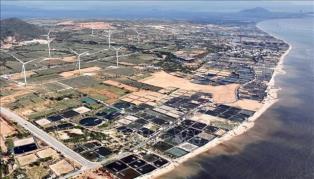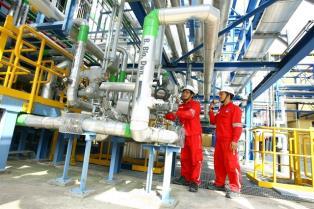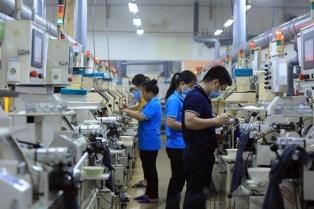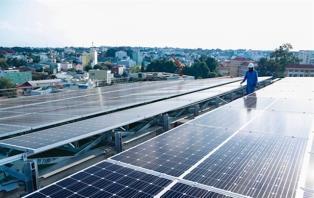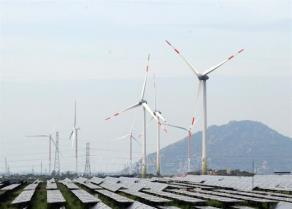Green transition is no longer just about environmental protection, it is a strategic imperative to ensure economic security, attract investment and export orders, and maintain HCM City’s role as the country’s economic powerhouse.

HCM CITY — Green transition is no longer just about environmental protection, it is a strategic imperative to ensure economic security, attract investment and export orders, and maintain HCM City’s role as the country’s economic powerhouse.
This was the key message from Nguyễn Văn Được, chairman of the HCM City People’s Committee, at the “Green Transition Forum and Recycling Festival 2025” held in HCM City on July 31.
“Green transition is no longer a choice, it has become an inevitable trend of our time,” Được said.
He outlined four major factors reshaping the city’s development context. First is the growing impact of climate change, which threatens both the environment and socio-economic stability. Second, global supply chains are being restructured, with ESG standards now essential for market access. Third, global competition is intensifying, with strength measured by resilience and innovation. And fourth, the city’s development space has expanded following the merger with Bình Dương and Bà Rịa–Vũng Tàu, forming a new mega region requiring coordinated policy and sustainable governance.
In this context, Được stressed, green transition is not a standalone goal, but a comprehensive strategy to enhance competitiveness, ensure investment attraction, and secure long-term prosperity.
To succeed, the city must adopt a new action mindset, not by implementing isolated projects, but by aligning them as part of an integrated strategy spanning infrastructure, resource management, and industrial development.
In terms of infrastructure, Được emphasised the need to evolve from “construction” to “creating smart and sustainable ecosystems.” Metro Line 1, for example, should be more than a transport project, it must serve as the backbone of a multimodal network connecting electric buses, waterway transport, and eco-friendly personal mobility, supporting the city’s green mobility transition.
On resource management, the focus must shift from “waste treatment” to “value regeneration.” Waste is now seen as a resource. HCM City is developing waste-to-energy initiatives and planning an electric vehicle battery recycling centre as part of efforts to develop a modern recycling industry integrated into the global green value chain.
In industry, the city must move from general investment attraction to targeting high-quality capital and core technologies. It is working to transform export processing zones and industrial parks into hubs for high-tech, digital, green, and circular industries.
Được also underlined the role of institutional reform, urging departments to break traditional frameworks, embrace innovation, and use digital tools to unlock resources for green investment, especially in renewable energy and the circular economy.
Science and technology, backed by Resolution No. 57-NQ/TW issued in late 2024, must be the core driving force. The city is developing a new innovation ecosystem to support breakthroughs in digital transformation and green technologies.
Public awareness, he said, is equally vital. The green transition must begin with individuals and communities adopting sustainable lifestyles and consumption habits.
Businesses must lead the transition, Được added.
“Green standards should not be seen as barriers, but as opportunities to innovate, enter new markets, and enhance brand reputation,” he stated. “The city pledges to stand with businesses and view them as key partners in this journey.”
Businesses at the heart of green transformation
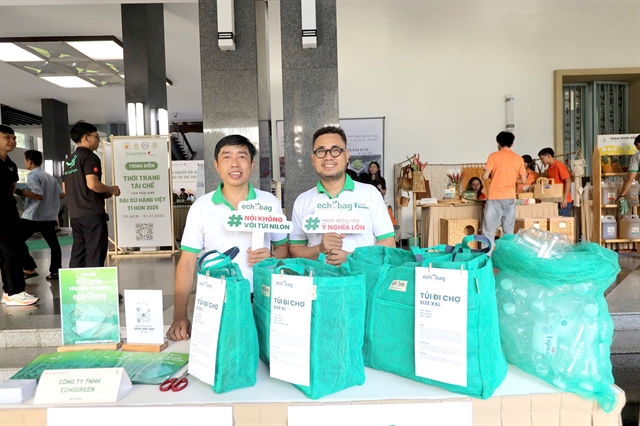
Huỳnh Thành Đạt, deputy head of the Central Dissemination and Education Commission, highlighted the role of private enterprises as the nucleus of the national innovation ecosystem and vital actors in the green economic shift.
He called on businesses to invest in R&D, digital transformation, and greener production. In turn, the State will support them with incentives in tax, credit, land, and legal reforms aligned with green technologies, ESG standards, and carbon markets.
He added that the Government is also investing in digital infrastructure and open data platforms to manage carbon emissions and promote green logistics. New technologies such as AI, blockchain, IoT, and advanced materials are being encouraged across sectors.
Public–private partnerships and collaboration between government, academia, and enterprises will be key to developing eco-industrial zones and fostering innovation, he said.
Phạm Bình An, deputy director of the HCM City Institute for Development Studies, presented the city’s roadmap to 2030, which is focused on green transformation across energy, transport and logistics, industry, urban environment, commerce–services, and agriculture, with businesses playing a central role.
At the forum, Nguyễn Gia Huy Chương, CEO of PRO Vietnam, shared how business alliances are building recycling ecosystems and implementing Extended Producer Responsibility (EPR), particularly in packaging.
Other speakers spoke on the challenges SMEs face in today’s brittle, anxious, non-linear, and incomprehensible (BANI) world, and called for practical support mechanisms to help them adapt and thrive.
The forum also marked the launch of the 2025 green transition support package for businesses, valued at over VNĐ1 billion (US$38,168), sponsored by Duy Tân Recycling. The package will help nine SMEs upgrade quality management, reduce emissions, and enhance export.
The forum was co-organised by the High-Quality Vietnamese Goods Business Association, the Business Studies and Assistance Centre, and the High-Quality Vietnamese Goods – Global Integration Standards Programme, with support from Duy Tân Recycling. — VNS

